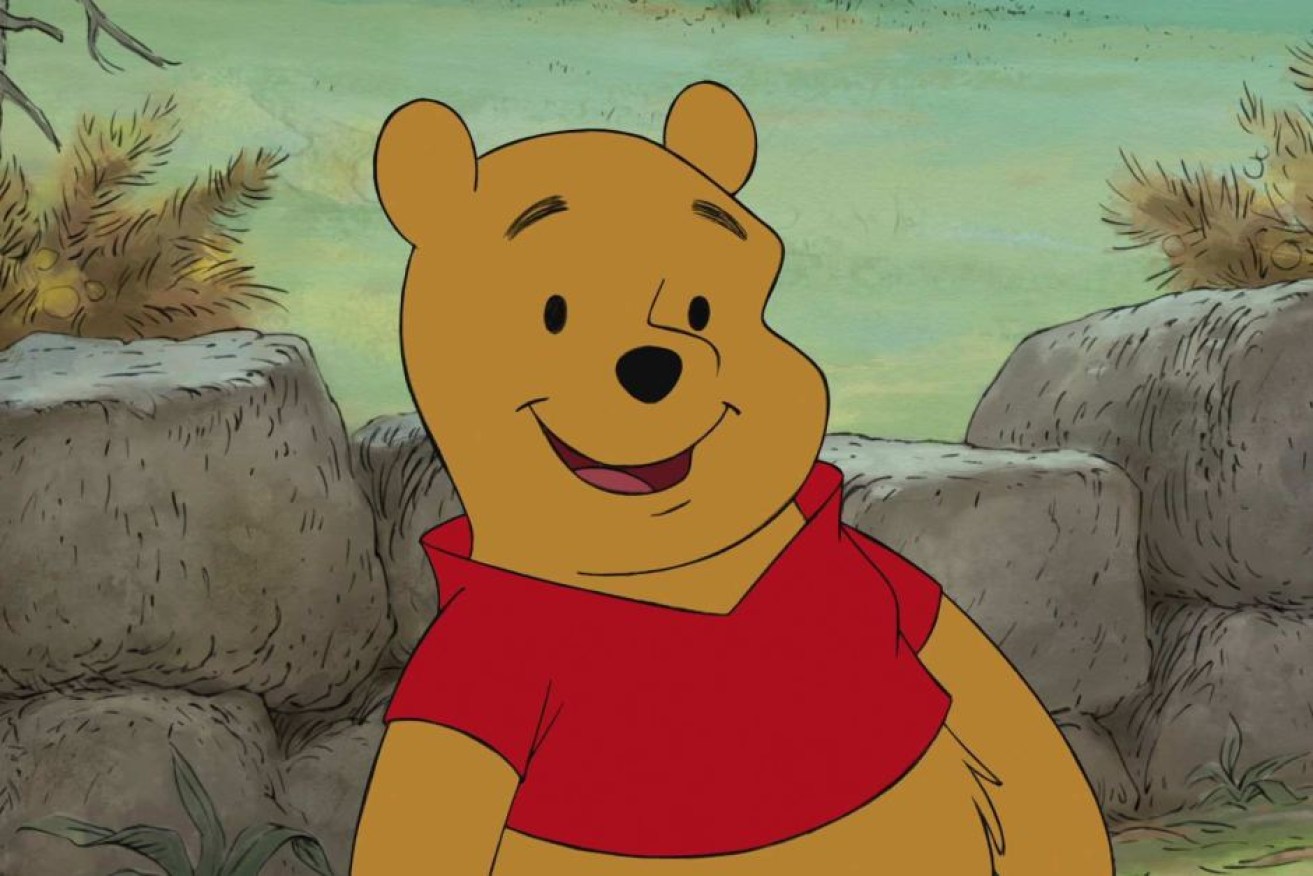China bans Winnie the Pooh over internet jokes comparing him to Xi Jinping

The Chinese Government runs a very comprehensive program of internet censorship. Photo: Disney Wiki
Winnie the Pooh might be a much-loved children’s book character, but the bumbling bear has fallen foul of the Chinese government’s internet firewall.
After being used as a stand-in for the country’s President Xi Jinping in a range of internet jokes – images, memes and gifs of the honey-seeking mammal have begun to quickly disappear online.
Merriden Varrall, director of the East Asia Program at the Lowy Institute in Sydney, said the jokes were seen as damaging by China’s ruling Communist Party.
“There’s one with Xi walking along with [former US president] Barack Obama and there’s then been a picture of Winnie the Pooh walking along with his friend Tigger,” she said.
https://twitter.com/YuanfenYang/status/886463867110301698
“There’s another with [Prime Minister of Japan Shinzo] Abe shaking President Xi’s hand, and Abe has been replaced with the miserable, very sad donkey Eeyore, and Xi Jinping is Winnie the Pooh.
Chinese Internet users FTW. #APEC2014 pic.twitter.com/6wFDvhlaNv
— Josh Chin (@joshchin) November 10, 2014
“This, unfortunately, has not pleased the elite and the powerful in China.”
The crackdown on the children’s book and cartoon character comes as China prepares for the 19th National Congress of the Communist Party, happening in October.
The Chinese government runs a very comprehensive program of internet censorship, including banning Facebook and Twitter and restricting access to Google and its email service, Gmail.
Despite those restrictions, observers said China usually had a very diverse and creative internet culture.
But Dr Varrall said the upcoming Congress could be the reason for the Winnie the Pooh crackdown.
“The leadership is probably even more sensitive right now,” she said.
“I mean it’s a little bit humourless at the best of times, but it’s even more sensitive at the moment about any kind of apparent ridiculing of the Chinese party leaders.”
The future of censorship in China
Web users in China thrive on finding creative ways to circumvent the country’s online censors.
Dr Varrall said the tonal Mandarin language was often used as a vehicle for clever ways to work around censorship, and still images and gifs posted online could take on a life and significance of their own online as a result.
“Many words sound more or less the same, but the tone differentiates between one word and another,” she said.
“So instead of saying a phrase, you use another phrase that means something completely different, but uses the same homonyms.
“So you might end up talking about ‘watches’ instead of ‘Communism with Chinese characteristics’, or you’ll end up talking about ‘river crabs’ instead of something more political.
“When the censors pick up on that, then you start having pictures of watches or river crabs to indicate what you’re trying to say – so it’s really creative.”
As web users find ways to circumvent the firewall, censoring the internet in China in general has become more difficult with each passing year.
(Web) En Chine, la photo la + censurée en 2015 est celle d'un jouet Winnie l'Ourson utilisée pour railler Xi Jinping pic.twitter.com/YvddMCkbRR
— Chronique Disney (@ChroniqueDisney) January 6, 2016
The country leads the world in the use of mobile phones for quick electronic payments, and homegrown platforms like Weibo and Alibaba have remarkably deep penetration.
Phone data is relatively cheap, and the country’s densely settled cities and geographically mobile population mean mobile phone use has grown rapidly.
Associate Professor James Reilly, from the University of Sydney’s Department of Government and International Relations, said China’s censors sometimes struggled to keep up.
“There’s an amazing level of horizontal communication – of the sharing of information,” he said.
Dr Reilly said as China’s population ages and as its middle class grows, the make-up of the country’s online community has become more diverse.
“There’s an ‘ageing up’ in the Chinese internet population, so you’ll see a lot of middle-aged folks who are very technologically conversant.
“Throughout the socio-economic spectrum as well as age-wise, people are getting more and more comfortable in accessing information through their phones, and sharing that information onwards.”
-ABC








